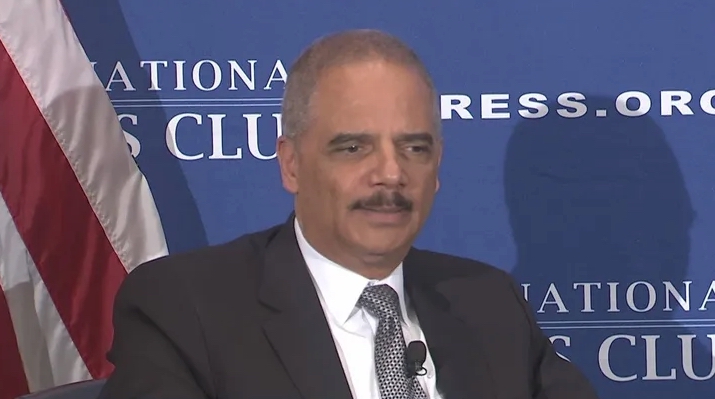This weekly newsletter, focused on environmental issues, highlights relevant analysis done by the John Locke Foundation and other think tanks, as well as items in the news.
1. Surface temperature data not supported by any other temperature measurements
In this article on the Daily Caller, George Mason University physicist Fred Singer discusses what should be some very uncomfortable facts for the true believers out there. First, and possibly the most important, is that conclusion that global temperature from 1978-2000 based on land-based thermometer measurements are not corroborated by any other measurements of global temperature. Here is what Singer points out:
…the commonly reported and accepted warming between 1978 and 2000 is based only on thermometers from land surface stations and is not supported by any other evidence that I could find. Specifically, ocean data (from 71% of the earth’s surface) and global atmospheric data (as recorded by satellites and independent balloon-borne radiosondes) do not show such a warming at all. In addition, most proxy data, from non-thermometer sources such as tree rings, ocean sediments, ice cores, stalagmites, etc., show no warming during this same crucial period. (One has to be careful in this analysis since the year 1998 shows a major warming spike caused by a Super-El Nino. But by 1999 and 2000, temperatures had returned to pre-1998 values.)
But apparently there is one time period where there is no discrepancy between the surface data and other measurements: in the period from 2000 to the present. Here’s what Singer points out:
There are many other such tests that can be performed. They might help us discover why land surface data disagree with all other data; thereby, we may get a better handle on whether the planet is really warming. We note here that the BEST results [surface data] do not show any warming trend in the 21st century — even though carbon dioxide levels have been rising more rapidly than before.
2. What happened to the BP disaster? Nature fixed it
A basic tenet of the environmentalist religion is that the ecosystem is incredibly fragile and not at all robust. Of course, if that were true, then there would be no question that large-scale disasters like the 2010 BP oil leak/spill in the Gulf of Mexico would clearly cause long-lasting and irreversible damage to wildlife and the environment more generally. This article from the Wall Street Journal looks at an interesting and important study, which suggests an opposite view — namely, that nature is quite robust and has built-in mechanisms that will clean up man’s messes and restore itself:
According to a new federally funded study published Monday by the National Academy of Sciences, those scientists were wrong. By the end of September 2010, the vast underwater plume of methane, plus other gases, had all but disappeared. By the end of October, a significant amount of the underwater offshore oil–a complex substance made from thousands of compounds–had vanished as well.
"There was a lot of doomsday talk," said microbiologist David Valentine of the University of California, Santa Barbara, and co-author of the study, published in Proceedings of the National Academy of Sciences. But it turns out "the ocean harbors organisms that can handle a certain amount of input" in the form of oil and gas pollutants, he said.
A year ago, Dr. Valentine and other scientists published a paper describing how bacteria that feed on naturally occurring oil and gas leaks underwater had apparently devoured much of the toxic chemicals released in the BP spill. That federally funded study, published in the journal Science, triggered disbelief among other researchers who questioned whether microbes could gobble up that much gas and oil so quickly.
Dr. Valentine and colleagues have now used a computer model to explain just how that scenario might have played out, though some scientists remain skeptical.
Of course "skeptical" is what scientists are always supposed to be, unless the issue being discussed is global warming, in which case anyone who is skeptical of the gospel according to the IPCC becomes a "denier."
3. Plastic bag bans: what a waste
In certain cities and regions around the country, people are being denied by their local governments the ability to carry their groceries home in disposable plastic bags. Such bans are the product of the same eco-totalitarian mindset that coerces us, allegedly free citizens, to use only government-approved light bulbs, toilets, washing machines, cars, and the list goes on and on. We can only speculate as to what drives this eco-control-freak mentality, but one thing is for sure, and that is whenever they get their hands on the power to coerce others, they have no moral qualms about using it for socially engineering the behavior of those around them to recreate the world in their image.
In this excellent article, Stearling Burnett from the National Center for Policy Analysis explains why such bans cannot be justified even on their advocates own terms.
One of the points that Burnett makes is that activist-dominated city councils are actually lying about the facts:
In Austin, the city council seems to be particularly influenced by a presentation from Bob Gedert, director of city department Austin Resource Recovery, in which he stated that plastic bags comprise 2.2 percent of the city’s litter. Gedert cited a study whose lead author was Steven Stein as the source for his claim.
However, Stein’s study never said that. In fact Gedert exaggerates the percentage of plastic bag litter by 366 percent. What Stein’s actually found was that plastic bag litter comprised only 0.6 percent of litter volume, not the 2.2 percent claimed by Gedert. Stein asked Gedert to make a correction. Even the 0.6 percent figure is high since it includes other types of plastic waste, such as industrial wrapping, dry cleaner and trash bags. Indeed, the national 2009 Keep America Beautiful study does not even include plastic bags in its top ten sources of litter .
Burnett also points out that, since people tend to reuse the bags for all kinds of purposes, the ban would likely lead to people simply purchasing more plastic bags (which would also go into the trash eventually) rather than bring about a significant reduction in plastic bag usage.
Finally, these bans are not good news either for job creation or people’s health:
The reusable bags that are being pushed as an alternative to paper or plastic in locales across the nation have other, rarely considered, drawbacks. On the economic front, China is the leading manufacturer of reusable bags, while plastic bags are made in the U.S. with the industry employing thousands of workers. Thus, cities banning plastic bags are helping China take over one more industry while putting American workers in the unemployment line.
There are also health concerns associated with reusable bags and these problems are already making people sick. When used to carry meats, poultry or fish, blood and other fluids can soak into the reusable bags. If not cleaned regularly and stored properly, bacteria — including e-coli — can take up residence and mold can form. Continued use can contaminate the users own food and even the food of others as the contaminated reusable bags come into contact with the grocery conveyor belt. It’s true that reusable bags can be washed, but doing so shortens their useful life considerably.
And of course the washing uses valuable water and detergents.
Click here for the Environmental Update archive.


